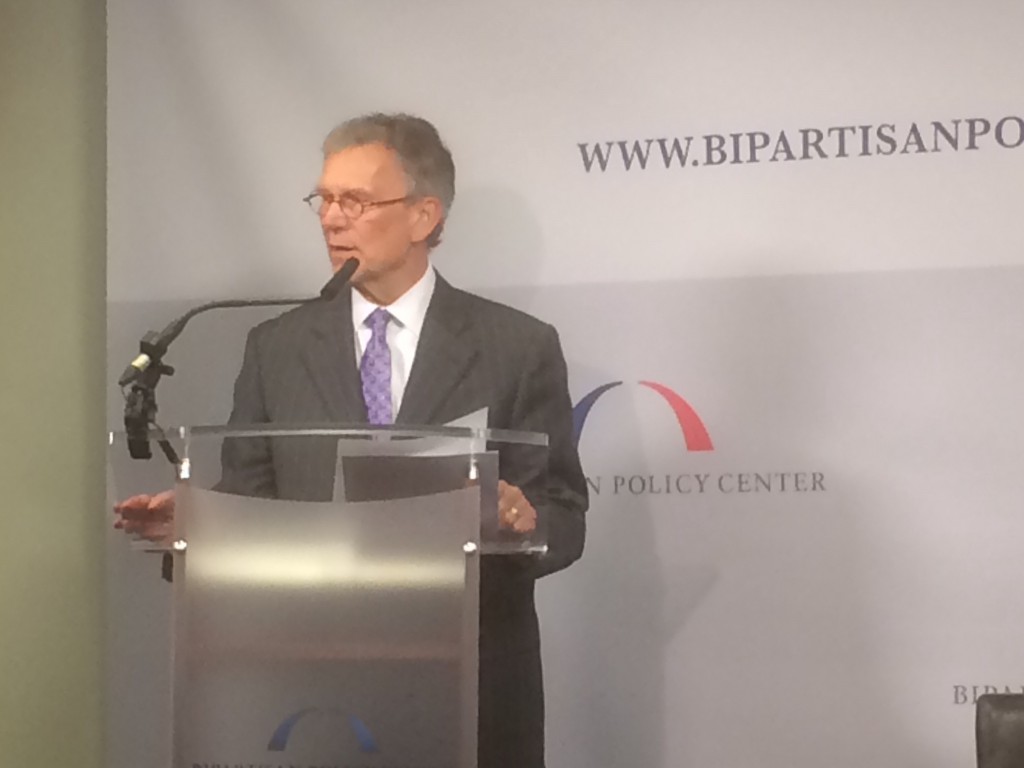
Former Sen. Tom Daschle explains the Long-Term Care Initiative’s recommendations for financing long-term care at the Bipartisan Policy Center Monday. (Noah Fromson/Medill News Service)
WASHINGTON — Employees aged 45 and older with retirement plans in benefits packages should be allowed to withdraw from their plans to purchase more affordable long-term care insurance packages, said experts from the Bipartisan Policy Center Monday.
That’s almost 15 years earlier than what’s allowed under existing law.
The Bipartisan Policy Center, a think tank dedicated to politically-balanced policymaking, established its Long-Term Care Initiative in December 2013. The group wants to find a means of financing and delivering long-term care. It released new recommendations for systematic improvements Monday.
With baby-boomers moving into retirement age, the number of Americans needing long-term support and services will more than double over the next 35 years, the policy center has said.
Under law, employees younger than 59 and a-half who participate in qualified defined-contribution retirement plans, like a 401(k), cannot dip into their retirement funds unless they experience serious financial hardship.
If the age for getting into retirement funds for long-term care insurance is not lowered, older applicants risk losing retirement security because premium rates become too expensive, said report co-author Sen. Tom Daschle, a former Senate majority leader from South Dakota.
“When you are 45 you have a number of years to contribute, and when you are much later in life you don’t have the element of time working for you,” Daschle said in a brief interview. Insurance providers “will charge you less (at 45) because you are younger and they assume you will contribute longer.”
Workers usually resist buying long-term care insurance in their working years because it seems costly and it’s unpleasant to think about, said Alice Rivlin, the report’s co-author and former director of the Congressional Budget Office.
“We want to safeguard the rights of retirees to pension resources,” Rivlin said. “Taken (with our other recommendations), we think this package of changes could result in much broader coverage of long-term care for the elderly.”
The report states that money taken from retirement funds would still be subject to income tax, but workers would not have to pay the usual 10 percent withdrawal penalty.
Ben Veghte, vice president for policy at the National Academy of Social Insurance — a nonprofit that focuses on how social insurance contributes to economic security — cautioned that the proposal increases the risk of workers draining their retirement funds.
“The problem with dipping into retirement savings is that people are already not saving enough,” Veghte said. “If they have to reduce the amount they are saving, they won’t have enough money to live on their retirement.”
Veghte agreed with the report’s recommendation for a public insurance program for those who cannot save enough to match catastrophic costs of long-term support and services.


